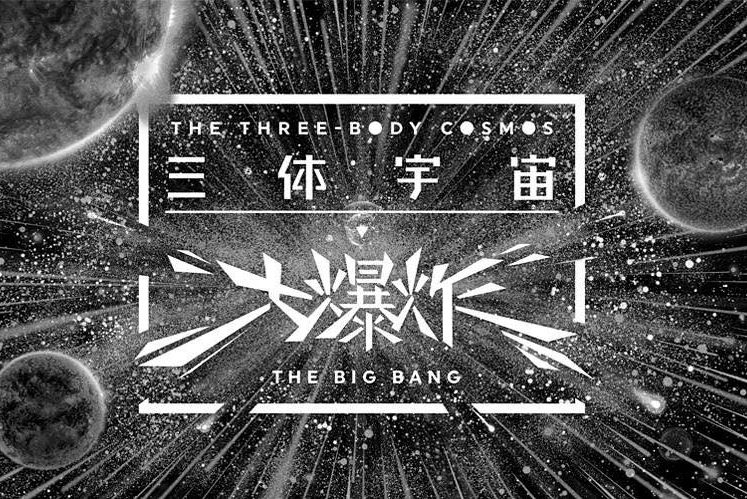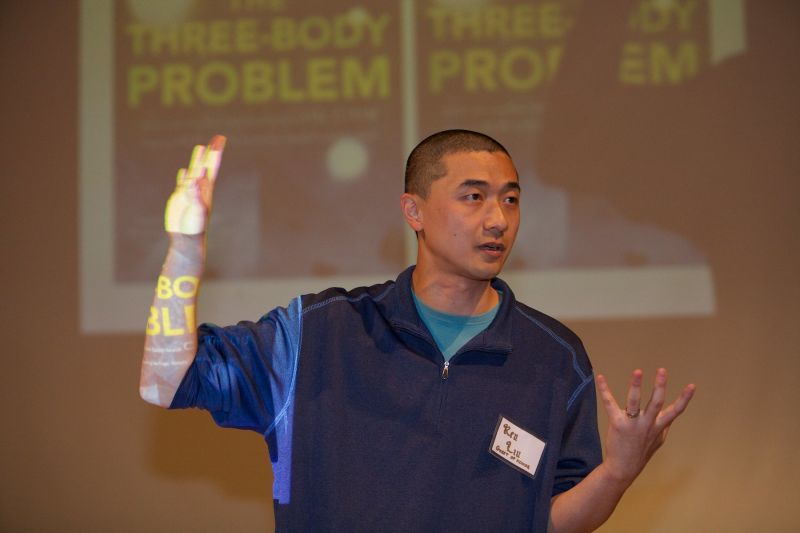Liu Cixin’s epic trilogy was expected to take Chinese science fiction into a new era, but the genre is still far from its lofty ambitions.

In a small lecture hall packed with hundreds of people, a lone voice shouts: “Now we are comrades!” Others join in, the chant bouncing off of the walls as they repeat the slogan in unison.
Despite the crowd’s fervor, it’s not a gathering of loyal Communist Party supporters. Instead, it’s an event for Earth-Trisolaris Organization (ETO) members, celebrating May’s 10th anniversary of the first installment of “The Three-Body Problem” by Chinese novelist Liu Cixin. In Liu’s famous series, the ETO helped communicate with a highly advanced, invading alien civilization. In real life, however, it’s merely a fan club with a tongue-in-cheek name.
In the front row of the China Science and Technology Museum’s chanting crowd stands Yao Haijun, a tall and slender 52-year-old who can’t stop smiling. It’s a joyful time for Yao: Around a decade ago, he helped lay the foundations for the immense “Three-Body” universe, which went on to become the best-known Chinese sci-fi series, and the first to win an international award. For others though, the anniversary shows how far Chinese sci-fi still has to go: Despite the success of “Three-Body,” a China-made sci-fi movie has yet to hit the silver screen.
So what went wrong?
“The Three-Body Problem” dates back to 2006, when Yao — then an editor of the monthly Science Fiction World magazine — received a draft of what would become the first installment of Liu’s epic trilogy. He’d read Liu’s previous stories, but this time Yao knew that he had something extraordinary in his hands. The novel was epic in scope — spanning time, space, and multiple civilizations, and describing how Earth would deal with the possible end of humanity. “This was what Chinese science fiction was lacking: a grand narrative,” Yao told Sixth Tone in a phone interview. Continue to read the full article here.
-This is original content by Sixth Tone and has been republished with permission.







